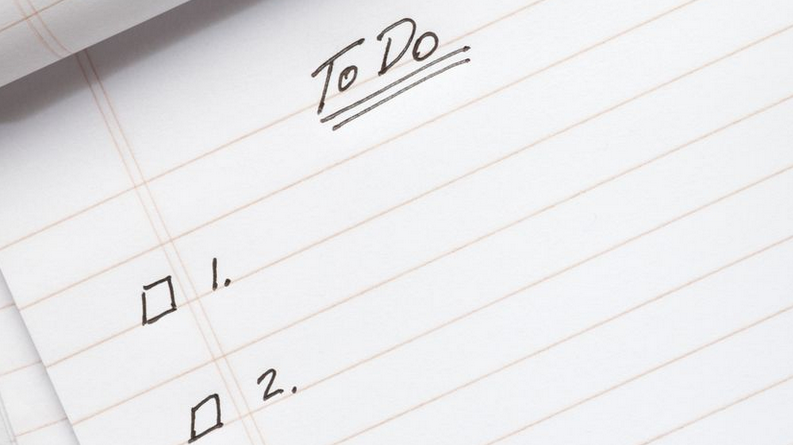For New Teachers, 6 Principles to Remember This Year
It won’t be easy, but if you prepare for turbulence and set reasonable goals, you’ll stay calmer and make progress in all the right places.
“Overwhelming” is how fifth-grade ELA teacher Cindy Bourdo characterizes her first year in the classroom. Unprepared for the intense workload and inexperienced in classroom management, she left the school building each day feeling “exhausted and defeated.”
But wait. It’s not that simple. Stepping into the classroom for the first time can also be “the most joyful yet sobering point in your teaching career,” writes elementary school teacher Candice Batson. “It’s the moment when you realize that every decision you make, big and small, will have an impact on the lives of other humans. You’ve spent years learning how to teach, and now it’s time to teach your students how to learn.”
As a novice teacher, Bourdo doubled down on crucial tasks like “learning new curriculum, developing personalized learning techniques, modifying lessons, and analyzing data” but concluded that “something was not working.”
Determined to improve her own practice, she visited the classes of experienced colleagues and landed on a game-changing insight: In their own ways, each found time to work on relationships with students. One played basketball with students at lunchtime on Fridays; another invited students to join her lunchtime walk. In time, Bourdo added a morning meeting to her repertoire, a small shift that “changed me as a teacher, and it changed the vibe in my classroom,” she recalls. “I began to feel happier at school, and I could see that my students were happier too.”
Lesson learned: If the first year in the classroom can be daunting, focusing on a handful of simple practices—including centering relationships—can help new teachers ease some of the stress of the job.
Here are six principles to remember this year:
1. It’s going to be a roller coaster. There will be transcendent moments—a child will tell you that they love you or that you’ve changed their life—but for the most part you’ll feel lost, not up to the task, and demoralized. “Prepare for the worst year of your life,” warns Rachel West in a Facebook thread, only slightly hyperbolically, and use that perspective to help you “realize it’s normal.” Consider writing a note to yourself—“Don’t be surprised when this is hard”—and put it somewhere you can’t miss it. It will restore your backbone when you’re a mess.
Don’t exacerbate the inevitable difficulties by engaging in negative talk. “Be careful who you vent to” because “a listening ear can also be a running mouth,” says Melanie Michaud, and don’t suffer educators who “bog you down with negativity and meanness,” echoes middle school teacher Christine Mattiko. Instead, invest time finding a small group of teachers who are positive, like-minded, and growth-oriented—then vent strategically when you’ve hit the wall and need to unload.
Trust us: Your toughest moments in the classroom are mere passing fancies for students.
“Find your reset button and hit it daily,” counsels Tonya Smith. “Keep in mind that when dealing with children, every day is a new day.”
2. Establish a precedent on grading right now. New teachers spend far too much time grading assignments—the obligation spills over into personal lives, interrupts plans with friends and family, and steadily erodes happiness and well-being. More disheartening news, according to experienced teachers? It hurts students too.
Filling papers with red ink overwhelms students—they end up ignoring hours of your best effort—and assigning less work so you can keep up deprives students of much-needed practice. “Marking up every sentence does nothing for the student,” confirms teacher Dawn Fable Lindquist, and is a clear “misuse of your time.”
Promise yourself that you’ll immediately adopt grading strategies that hundreds of experienced teachers say are best practices. “Make no more than three comments on everything you grade,” insists Hilary Dumitrescu, and keep your feedback laser-focused on high-priority areas of improvement.
Meanwhile, assign plenty of work to get kids practicing their skills, but resist the urge to grade all of it. You can even use the one-in-four rule and provide in-depth feedback to only 25 percent of any student’s assignments—the practice is a game-changer, according to master teachers. Finally, use tech tools to automate the grading of multiple-choice quizzes, and teach your students to use preprepared assessment rubrics to self-assess or provide peer-to-peer feedback.
3. Develop a simple set of relationship-building strategies. Early in your career, students are more likely to explore classroom rules and test your boundaries. You’ll be tempted to confront every infraction. Instead, you should try to keep your perspective and tackle only the issues that threaten classroom equilibrium.
When one or two students inevitably begin distracting peers, “my welcoming smile quickly turns into a neutral facial expression,” teacher Crystal Frommert notes, referring to the development of “the look,” a powerful nonverbal classroom management tactic wielded by veteran teachers everywhere. She follows up with a firm but kind “Please get back to the assigned task.”
In the end, the best classroom management is invisible; veteran teachers rely on proactive strategies that emphasize strong relationships and then work prudently behind the scenes, discouraging misbehavior before it gets started, a 2021 study reveals. To nip disruptive behavior in the bud, make relationship-building core to your day: Greet your kids at the door; use brief, beginning-of-the-year surveys to ask about their interests, passions, or pets and family members—and follow up in future conversations; consider brief weekly or daily check-in activities to build culture continuously.
Finding the right balance between being firm yet friendly takes practice—and probably more than a few false starts. “Be patient with yourself,” says Frommert. “Even veteran teachers have to rein in the boundaries from time to time. Respect and firm communication of expectations will foster an engaging and fun class culture without crossing any lines.”
4. Seek out the helpers. Great mentors are essential for developing great teachers—even if your instinct is to carve out your own path through your first years of teaching. “You’ll never get to everything,” warns teacher Meghan Grace, referring to the mountains of grading, paperwork, and planning that lie ahead. But you’ll make inroads once you connect with a “positive, veteran teacher to help you prioritize things.” With strong, consistent mentorship, research shows, teachers stay in the profession longer, and there’s a significant impact on student academic outcomes too.
Choose wisely. If you’re not assigned a mentor, look for experienced, growth-oriented colleagues who will “listen with empathy,” counsels Cait Marie, an English teacher in New Jersey—and also know how to redirect “worries and emotions positively,” writes educator Alec Mielke via Facebook.
Take the direct approach: Simply “make time to email different teachers in your building that you admire and let them know you want to stop by their classrooms to see them in action,” says Andrea Marshbank, a high school ELA teacher. “Most teachers will be glad to work with you and to talk afterward about your thoughts and observations. We get better at teaching when we talk productively about our practice.”
5. Make reflection a daily habit. A consistent habit of meaningful reflection is at the heart of every good teaching practice and can become immensely productive, fueling continuous growth and improvement. But finding regular time for it can be tough, especially after “teaching a full day, grading assignments, providing feedback to students and families, meeting with advisees and colleagues, and then preparing for the next day,” says high school engineering teacher John Kamal. As a novice, you’ll also be battling emotional fatigue.
For new teachers, all of that might feel like a great reason to shelve reflection—but that’s a mistake.
To make it a daily habit, keep reflection as simple as possible. During transitions in the day, or in brief moments after his last class, Kamal jots notes in apps like Evernote or OneNote, or records quick voice memos he can review later. To make it less daunting, focus on just one or two areas of improvement at a time, and be disciplined about letting the rest go. For example, if you are concerned about the quality and effectiveness of your daily lessons, start by focusing on just one of them, suggests educational consultant and former teacher Megan Collins, and use simple guiding questions like “What proves that students actually learned?” and “What teaching skills did I use today to promote learning?”
6. Set a few personal boundaries—and stick to them. In a profession that’s notorious for its high burnout rate, setting firm personal boundaries early in your first year is critical, because “if you spend all of your time and energy in your classroom, that becomes the expectation—even as life events happen,” warns Heather Bouillet, a teacher at Carmel Clay Schools.
Consider a few simple adjustments:
Find ways to unplug: Consider removing access to work emails from your phone, for example, so you’re not tempted to respond to work emails nights and weekends.
Learn to say no: “You do not have to sponsor clubs, do extra unpaid activities, or really do anything that doesn’t scale to you being a good teacher to your kids,” says teacher Erin Rivet Burkamp. “Do extra things if you really want to, but don’t let anyone guilt-trip you into doing more if you just cannot.”
Protect your time: Work will drift into your evening or weekend at times, so consider picking one day of the week that you work long hours. Do everything you can to keep your weekends free.
Source: https://www.edutopia.org/article/new-teachers-6-principles-remember-year




